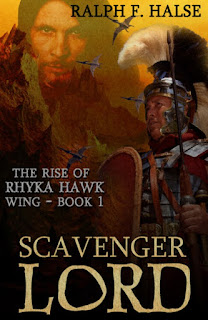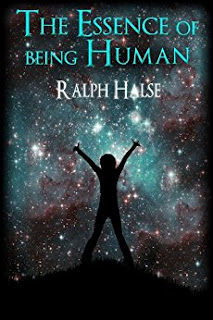A note to my brother on writing
Congratulations on deciding to write your first novel, and thanks for reaching out. Many find writing a novel a daunting prospect, yet are compelled by some unknown force to do so. For others, it is an act of pure joy.
Whatever your starting point, I wish you well developing your project, and pray I will see your work on the best sellers list shortly. As we have not discussed your starting point, I will offer advice on my style, developed over several years.
Most important to me are two tasks — writing and editing. I suggest you find that time to write that works for you. Later, make more time to reflect to edit with a critical eye. What works for me, is rising early. I brew a pot of coffee while the family sleep, and study what I last wrote. The first task, edit dialogue into engaging, meaningful words relevant to my plot. I will hit other editing high points when I write next.
At this early point in your writing, a constant reappraisal of your work is a must. You are creating an unpublished world known intimately to you alone. You have, with the instigation of your written words, set in motion the first steps to sharing with others. You did this because you believe your story has merit.
Your style may be humorous or contain real-life grit around personalities we have all known or perhaps, would like to know, have never dreamed existed or, would never want to meet in a million years, and that brings me to the crux of my writing note.
Characters may be many things — happy, sad, intense, chatty but never bland or featureless. That is unless you plan for a character to be so, as an integral part of your overall plot for impact at a particular juncture.
Characteristics you enjoy or dislike about your created person add credibility to your plot.
We all possess personalities that make us distinctive as human beings.
However, we share recognisable traits with those around us. The trick here is, in writing, how do you get that across to your audience in a credible, binding way? In the real world, some people are naturally humorous, others gloomy. Some will make you shake your head in wonder at their antics, and what they say. Others may cause your skin to crawl. More than a few will have you think, this is a nice person.
People we observe are the source upon which you draw to inject your characters with credibility. Be an observer of human nature and study the humorous, gloomy and doomy, self-assured, nervous of disposition, arrogant, reckless, manipulative, kind, malicious, devious, hard to get along with, likes to talk — cannot shut him/her up, cannot get him/her to talk — silent type, easy to anger, slow to anger, cruel, mean, drunks, addicts…
By your actions to date, I know you have made your study and formed the picture in your head. Which is exactly what you need to bolster your story. Now write what you see.
Yes, it is difficult to incorporate aspects of humanity into cohesive words as your thoughts jumble out onto a page, broadening your story. Building your unique world, however, becomes easier as you commence the editing and review process.
A good rule of thumb — read complex portions of your work out loud onto a recording device. Hit - Playback, and listen. If what you hear sounds off, a reader might struggle too. I do a version of this with dialogue. I’ve hit the delete key frequently after performing this exercise.
Consider too, not only the aspects of the personality of your character but their features.
You may know the person you are describing, drawing upon real-life. Alternatively, you may be describing a constructed character. Accordingly, you may make assumptions about what you visualise in your mind and omit vital, interesting details.
My method is to offer an outline and, I pad that outline out later on with other, interesting details as my character evolves.
"He had a rough exterior and stood around one hundred and eighty centimetres with a blue, three-day growth covering a square jawline. Jug-handled ears that would suffer from bitter Melbourne winters were covered by a black beanie bearing the Carlton football logo. A snub nose set below light brown eyes held a humorous quality as if he were on the verge of telling a joke stared out at the passing world with something bordering on amusement. People who did know him often mistook that look for disdain, but once you got to know Bluey no one ever made that mistake again."
Aspects of body type are critical in story construction too — tall, short, stocky, lanky, squat, chunky, thin, hard-muscled, bean pole, looked like a stork — all legs and neck and nobody, dumpy, average height…
Consider character speech patterns. Most of us speak in a "normal manner" but should all your characters?
Character speech patterns go a long way to drawing your audience into your created world — croaky voice, rasped quality, deep voice, hoarse, whispered, high-pitch, low rumble, deep bass, growl, breathless, stuttered, sexy, husky…
My best early advice. Get whatever is brewing in your head onto ‘paper,' which I use from time to time. After you have poured the swirling contents of your brain into your pen (laptop), take a well-earned break from writing. Sometime later, grab your favourite beverage, sit back and review. Often, I print a problematic chapter and scribble all over the page in red. Adding arrows, moving and inserting concepts and dialogue to different locations, helps me focus.
It may be you will commence your chapter one with a character speaking, the description of an event, or event aftermath. You might construct your story employing a writing tool to build your world into a plan to follow. No matter your starting point, let the words flow.
As you commit words to your story, consider this. Unless you are a literary expert, do not expect to edit your work in one go and produce a quality document. To do so will mean setting yourself up to fail.
While I’m rambling about writing technicalities, I am reminded of the expression "writers' block". From experience, I say that it is a real phenomenon. I overcome this by putting my story away and doing something else, often for a day or two. I let my characters speak to me in their own time, in their voices as I mentally review. What works for you, maybe thought bubbles, scribbling, sticky notes, research, conversations with friends, and much reappraisal.
Many writers are keen to gain feedback from close friends on their masterpiece. Confusion may reign if you receive a negative opinion from someone you run your manuscript by — and they may well be one hundred per cent accurate!
I will write more about opportunities on how you may approach overcoming negative comments in my next letter.
Here is the thing about editing. After you have run your eye over a problematic page a dozen times, you will likely build a decent collection of words painting a clearer picture of your way forward, around that perceived negative comment. The question is, does that negative comment hold sufficient merit to cause a re-write? Lot of soul-searching on a question only you can answer.
One thing is for certain. The more you edit, the better a writer you will become. Numerous times, I have written a paragraph, sentence or concept, and in the editing phase, moved it up, down and across by pages, paragraphs, lines, even chapters to ensure I get my story across. Only to have my editor suggest an alternative.
Enjoy the tasks ahead as write. I will write again soon, and look forward to reading your draft.
Cheers



Comments
Post a Comment